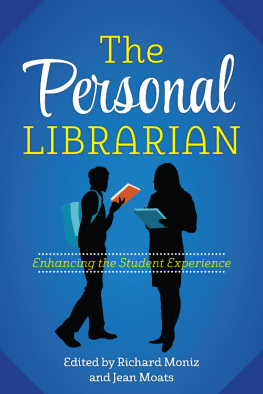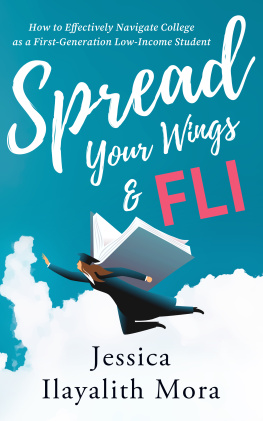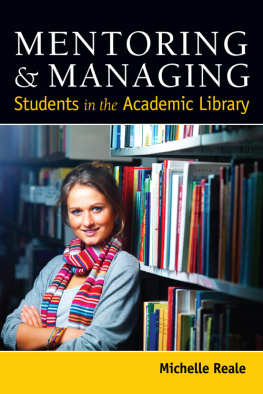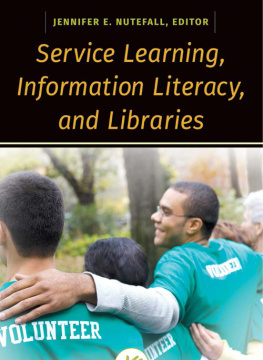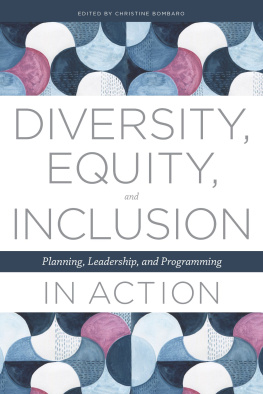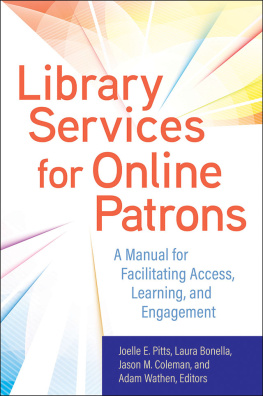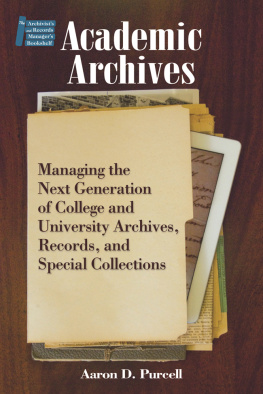Academic Library Services for First-Generation Students

Xan Arch and Isaac Gilman

Copyright 2020 by Xan Arch and Isaac Gilman
All rights reserved. No part of this publication may be reproduced, stored in a retrieval system, or transmitted, in any form or by any means, electronic, mechanical, photocopying, recording, or otherwise, except for the inclusion of brief quotations in a review, without prior permission in writing from the publisher.
Library of Congress Cataloging-in-Publication Data
Names: Arch, Xan, author. | Gilman, Isaac, author.
Title: Academic library services for first-generation students / Xan Arch and Isaac Gilman.
Description: Santa Barbara : Libraries Unlimited, [2020] | Includes bibliographical references and index.
Identifiers: LCCN 2020007195 (print) | LCCN 2020007196 (ebook) | ISBN 9781440870170 (paperback) | ISBN 9781440870187 (ebook)
Subjects: LCSH: First-generation college studentsServices forUnited States. | Academic librariesUnited States. | Libraries and collegesUnited States.
Classification: LCC LC4069.6 .A73 2020 (print) | LCC LC4069.6 (ebook) | DDC 378.1/982dc23
LC record available at https://lccn.loc.gov/2020007195
LC ebook record available at https://lccn.loc.gov/2020007196
ISBN:978-1-4408-7017-0 (paperback)
978-1-4408-7018-7 (ebook)
242322212012345
This book is also available as an eBook.
Libraries Unlimited
An Imprint of ABC-CLIO, LLC
ABC-CLIO, LLC
147 Castilian Drive
Santa Barbara, California 93117
www.abc-clio.com
This book is printed on acid-free paper 
Manufactured in the United States of America
Portions of this book expand upon material published in Arch, Xan, and Gilman, Isaac, First Principles: Designing Services for First-Generation Students, College & Research Libraries [Online], Volume 80 Number 7 (November 1, 2019).
Contents
Introduction
Higher education in the United States is facing a long-overdue identity crisis. For the most part, colleges and universities in this country have historically served a predominantly white, middle-class and upper-class student population. Accordingly, the systems and cultures of these institutionsespecially of four-year institutionshave evolved to privilege the experiences and expectations of those students and their families. This has created both a hidden and overt curriculum and incoming cohorts of students become increasingly diverse, institutions are faced with a critical question: is it more important to preserve their traditional culture and systems or to evolve to acknowledge the identities, strengths, and expectations of their new student population?
To date, institutions response to this question has generally been to treat students from diverse racial, ethnic, or socioeconomic backgrounds as at risk due to expectations that they will struggle to conform with the institutions prevailing norms. This approach is illustrated by one education scholars examination of institutions diversity policies, which she found generally establish majority (white and male) [culture] as the standard against which to measure minority progress and success by identifying a need to help students of color meet existing standards. Rather than acknowledgingand incorporatingthe strengths that such students bring to their educational pursuits, this lens positions students identities as deficits. The responsibility is placed on the student to assimilate in order to succeed academically, rather than challenging the institution to critically examine its culture and practices.
Rather than assuming that first-generation students academic struggles are indicative of deficits that students themselves need to remedy, institutions should acknowledge that who they serve is changingand that in order to effectively educate these students, it is the institutions that should identify and address their own deficits. This is true both across the institution as a whole and within each individual department. Every area should examine its practices to determine the ways in which it is implicitly privileging certain identities and backgrounds and presenting barriers to students who dont conform with traditional expectations. This should not be an exercise in creating accommodations for nontraditional students, but rather a complete reframing of departmental approaches to privilege practices that recognize that there is a New Traditional student. And if institutions are successful in doing this for first-generation students, they should be well on their way to creating an educational environment that supports all students, regardless of family history or individual identity.
THE ROLE AND RESPONSIBILITY OF ACADEMIC LIBRARIES
While colleges and universities should be examining how their culture, practices, and services as a whole can be reframed to be more inclusive of the identities and experiences of first-generation students, the role of academic
Centralizing services in libraries in this way is seen as serving dual purposes in support of student success. Leveraging the librarys role as the most significant academic physical space [] outside the classroom can bring increased visibility to formerly disconnected service areas, making it easier for students to find and utilize the services they need.
With growing emphasis on libraries as influential factors in the success and retention of undergraduate students, and a push to make libraries an even more prominent part of the student experience by co-locating a variety of student services either physically or administratively within the library, it is important to consider whether library services are constructedlike their parent institutionsto implicitly privilege certain identities, backgrounds, and experiences. It is incumbent on libraries to ensure that their services and resources are helping students navigate their learning experience and not presenting a challenge for first-generation and other New Traditional students who will comprise an increasing percentage of campus populations going forward. If academic libraries are designed to meet the needs of first-generation students, they will be well positioned to serve every student. They will have eliminated the assumptions developed through generations of serving the majority culture of white, middle-class, and upper-class students and will have created libraries that are open, inclusive, and accessible to all identities.
THE MYTH OF INHERENT INCLUSIVITY
Proposing that academic libraries must examine their assumptions, practices, and services to ensure that they do not present unintended barriers for first-generation college students or other historically underrepresented populations may seem, on the surface, to be unnecessary. Over the past century, libraries have positioned themselves as inclusive and accessible centers of intellectual and civic community life. The current American Library Association Code of
While such efforts are important first steps in creating a more comfortable and inclusive library environment, in the past decade, there has been increasing awareness of the need to also critically examine basic assumptions and structures within libraries in general, and academic libraries more specifically, that may contribute to a library environment that is neither neutral nor inclusive. It has long been acknowledged that the ways in which libraries organize information, and the information they choose to collect, has been implicitly constructed around the positioning of a white, male, heterosexual worldview as normal; this was perhaps most prominently described by Sanford Berman in his 1971 Prejudices and Antipathies: A Tract on the LC Subject Heads Concerning People , and those library environments create barriers for those students who are in any way other.
Next page

